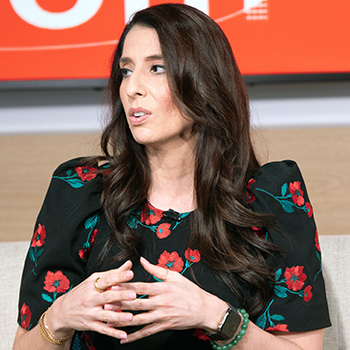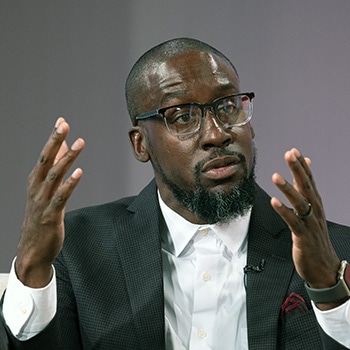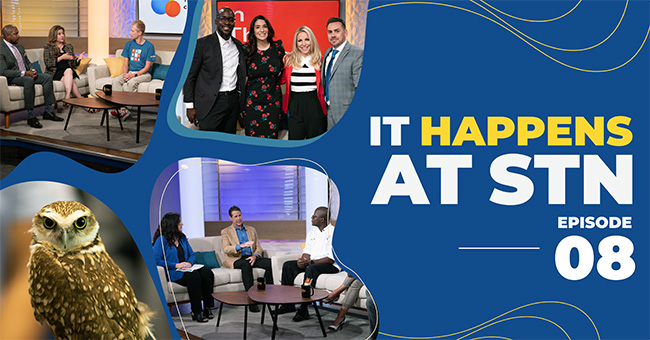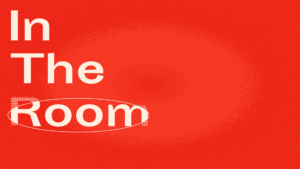When it comes to education, Arizona is ranked 48th in the country. So, what is at the heart of the struggles with the state’s schools?
In this In the Room Action Panel, Executive Director of All in Education Stephanie Parra and the Founder of the Million Dollar Teacher Project Lloyd Hopkins sit down with It Happens at STN host Eric Sperling to talk about teacher retention, the push and pull of politics and why adults are key in solving the problems school kids are facing.
Plus, Hopkins and Parra talk about working with state leaders on education initiatives and roles in Arizona Governor Katie Hobbs’s administration. Parra served on Hobbs’s transition team and Hopkins recently was named to the Educator Retention Task Force.
Watch the In the Room Action Panel
Action Panelists
In the Room is part of It Happens at STN, a local news hour dedicated to community growth and actionable solutions.
Each month, leaders engage in bold conversations surrounding mental health and mentorship.
Action Panelists
Stephanie Parra
Executive Director – All In Education
Lloyd Hopkins
Founder – Million Dollar Teacher Project

Paradigm Shift
One thing that we always tell our leaders is that student outcomes don’t change until adult behaviors change. That is such a real fact in education. When we get stuck as adults, in our adult problems, we are contemplating and politicking rather than prioritizing our students and their wellbeing. That is why we are consistently telling our leaders, student outcomes don’t change until adult behaviors change. Who has to change their behavior first? That’s us.
Issue of Respect
At the core, there’s also a major lack of respect for the [teaching] profession. Teachers, at the end of the day, just want to know that they are valued, that they are honored, and that they’re respected just like kids in a classroom, just like people in a community.
People in the profession need to know that we respect them. It goes back to the adults making decisions on behalf of teachers and whether or not we’re in investing in their classrooms, making sure that they’re well-resourced and supported. We have to start with respect.
Playing Politics
When people are making decisions, they’re making policy decisions on behalf of school systems. And that’s where the politicking comes into play. We might agree that we want to invest in schools, but we might disagree on what that investment looks like, So then the politicking starts happening, and then adults get stuck in the politicking.
The other thing that is extremely challenging right now is the conversation around critical race theory. A lot of rhetoric is anti-DEI rhetoric. Adults get stuck in politicking rather than expanding the conversation about what’s good for kids and what’s good for the development of an incredibly diverse community. Kids also need to feel seen and feel like they belong in the curriculum. So let’s center around that and then make decisions that will be in the best interest of kids.
Generation Next
It’s a lot of work to be in this space. I’ve been at this for over a decade. You have seen the incredible young people in our community. They are brilliant, and they’re incredibly talented. I get to see them as a school board member at Phoenix Union, and they inspire me. So when I am crying out of frustration, I go and I get energy from them because I know when they are in leadership roles, the world’s going to be a better place.
Call to Action
We need the community to wrap its arms around schools. We can’t do it all on our own. We have asked schools post-pandemic, and pre-pandemic, to be social service agencies and we don’t have the tools or the resources or the systems to do that well. So [we’re] always asking the community, wrap your arms around us, collaborate with us, partner with us, that’s going to lead to the transformational change.

Touch of Grace
As adults, we have to remember that even kids are still human beings. And the thing that I always realize, and even as a parent myself, is that we look at kids like, and we treat them like they’re supposed to be perfect. But as adults, we want grace for our imperfections; we don’t have it all figured out. But we treat kids like they need to have it all figured out.
That’s just not the case. They need the same grace. They need to be able to make mistakes and be flawed. The room is gonna be dirty sometimes. Sometimes they’re going to hit that wall. It’s all a part of the process of learning.
So as adults, we have to remember that these are developing adults. These are people that will eventually become adults, but they’re still flawed and imperfect just like we are. And we’ve got to have patience and be reminded of that.
Major Shortage
In the state of Arizona right now, we have over 2000 classrooms without a permanent qualified teacher. That’s impacting around 50,000 students. That means you have students learning from teachers that are teaching outside of their specialty, learning from long-term substitutes, and learning from individuals that may not be as passionate or committed to the profession and their learning journey in general.
If we are really trying to create an equitable education system, it starts by ensuring that we have competent, qualified, passionate, and skilled individuals at the front of that classroom, delivering the instruction. Part of that means that we have to impact the culture, [and] the environment that teachers teach in so they can impact the culture and environment in which their students learn in.
Brand Management
The profession really needs a rebrand. It really needs the community to rally and show how much they support this profession. The teaching profession is this omnipresent thing. What we tend to do – we do it with our families, we do it with our loved ones.
Anything that’s omnipresent, always around us, we tend to take it for granted. We treat our teaching profession like it’s not vulnerable. We treat these individuals like, “Oh, they knew what they were getting into.” [Or} “They’re teachers and they’re supposed to suffer through it.” Which is not fair and it’s not sustainable.
Environmental Issue
If we really want a quality education, we really have to look at how we’re surrounding and protecting and taking care of these individuals that we’re entrusting with our kids eight to nine months out of the year. Teachers are spending more time with our children than we are.
If we really understood how close some of these individuals were to their breaking points, we might not put them in there. We have to take that seriously. We always have to think about that, that teachers are connected, are connected to our households, they’re connected to our families, and it should be a partnership. We need to work in collaboration.
Long COVID
We have to remember that we have students in these classrooms who have suffered through three years of learning loss. So you have a student that is a fifth grader, but they’re still technically second graders. Because there was a disruption to how lesson plans were delivered, [and] how their instruction was delivered.
The whole world had to transition to Zoom. Some people handled it well, some people did it. Our teachers are in the classroom faced with a lot of challenges that they didn’t anticipate, expect, or even get into the profession to deal with.
Get Involved
I launched Million Dollar Teacher Project because, at the foundation, I believe it’s a community’s responsibility to support educators. I understand that not everybody’s going to be a crazy teacher fan like me and [going to] run out and launch a whole organization dedicated to it. But someone or some entities have to create those pathways to make it easy for people to get involved in a way that’s realistic and sustainable for their lifestyle and for their energy and passion level.
Every single day I get up driven by purpose because I have accepted that responsibility. I think our teachers deserve it. That’s really what motivates and drives me through the challenges.




